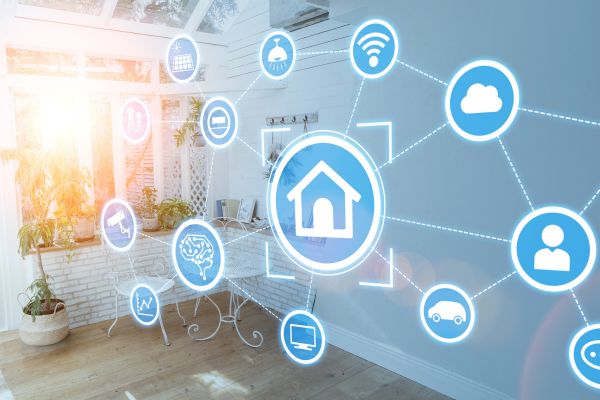In today’s fast-paced digital era, governments across the globe are increasingly leveraging technology to enhance their operational efficiency, transparency, and service delivery. From implementing advanced data analytics to adopting cloud computing, government technology solutions are transforming the way public services are delivered. This article delves into the various aspects of government technology solutions, exploring their benefits, applications, and future trends.
What Are Government Technology Solutions?
Government technology solutions refer to the array of technological tools and systems specifically designed to address the unique needs and challenges of public sector organizations. These solutions encompass a broad spectrum of technologies, including:
- Cloud Computing: Facilitating scalable and cost-effective storage and computing power.
- Data Analytics: Enabling data-driven decision-making and policy formulation.
- Cybersecurity: Protecting sensitive government data from cyber threats.
- Artificial Intelligence (AI): Automating routine tasks and improving citizen services.
- Blockchain: Ensuring transparency and security in government transactions.
The Importance of Government Technology Solutions
Government technology solutions are crucial for modernizing public sector operations and ensuring they keep pace with the private sector. These technologies offer several key benefits:
Enhanced Efficiency
By automating routine tasks and streamlining processes, government technology solutions can significantly improve operational efficiency. For instance, AI-powered chatbots can handle citizen queries, freeing up human resources for more complex tasks.
Improved Transparency
Technologies like blockchain can provide a transparent and immutable record of government transactions, enhancing accountability and reducing corruption.
Better Decision-Making
Advanced data analytics enable governments to harness vast amounts of data, providing insights that inform policy decisions and improve public services.
Cost Savings
Cloud computing and other technologies can reduce the need for expensive physical infrastructure, leading to significant cost savings for governments.
Enhanced Security
With the growing threat of cyber attacks, robust cybersecurity solutions are essential for protecting sensitive government data and maintaining public trust.
Applications of Government Technology Solutions
Government technology solutions are being applied across various domains, transforming public sector operations in numerous ways.
E-Government Services
Governments are increasingly offering services online, from tax filing to license renewals, making it easier for citizens to access public services.
Smart Cities
Technologies like IoT (Internet of Things) are being used to create smart cities, where data from connected devices is used to optimize everything from traffic management to energy usage.
Public Safety
Advanced technologies are enhancing public safety by improving emergency response times, crime prediction, and disaster management.
Healthcare
Telemedicine and electronic health records are revolutionizing healthcare delivery, making it more efficient and accessible.
Education
Digital learning platforms and AI-driven personalized education are transforming the education sector, making learning more engaging and effective.
Future Trends in Government Technology Solutions
The future of government technology solutions looks promising, with several emerging trends set to shape the landscape:
Increased Adoption of AI and Machine Learning
AI and machine learning will play a pivotal role in automating routine tasks, enhancing decision-making, and improving citizen services.
Expansion of Blockchain Applications
Beyond financial transactions, blockchain will be used in areas like voting, identity management, and supply chain transparency.
Growth of Smart City Initiatives
Smart city initiatives will continue to expand, leveraging IoT, AI, and data analytics to create more efficient and sustainable urban environments.
Enhanced Cybersecurity Measures
With the increasing threat of cyber attacks, governments will invest more in advanced cybersecurity measures to protect their digital infrastructure.
Greater Focus on Data Privacy
As governments collect more data, ensuring data privacy and compliance with regulations like GDPR will become increasingly important.
Challenges in Implementing Government Technology Solutions
While the benefits of government technology solutions are clear, their implementation is not without challenges. Some of the key obstacles include:
Budget Constraints
Many governments face budget constraints that can limit their ability to invest in new technologies.
Resistance to Change
Public sector organizations often have entrenched processes and a culture that can be resistant to change.
Data Privacy and Security Concerns
The collection and use of large amounts of data raise concerns about privacy and security that need to be addressed.
Skills Gap
There is often a lack of skilled personnel to implement and manage new technologies, necessitating investment in training and development.
FAQs
- What are government technology solutions?
Government technology solutions are technological tools and systems designed to address the unique needs and challenges of public sector organizations, including cloud computing, data analytics, cybersecurity, AI, and blockchain. - Why are government technology solutions important?
These solutions enhance operational efficiency, improve transparency, enable better decision-making, provide cost savings, and enhance security in public sector operations. - How are government technology solutions applied?
They are applied across various domains such as e-government services, smart cities, public safety, healthcare, and education, transforming public sector operations. - What are the future trends in government technology solutions?
Future trends include increased adoption of AI and machine learning, expansion of blockchain applications, growth of smart city initiatives, enhanced cybersecurity measures, and a greater focus on data privacy. - What challenges do governments face in implementing these solutions?
Challenges include budget constraints, resistance to change, data privacy and security concerns, and a skills gap in managing new technologies.
Summary
Government technology solutions are revolutionizing the public sector, offering numerous benefits such as enhanced efficiency, improved transparency, better decision-making, cost savings, and enhanced security. Their applications are vast, spanning e-government services, smart cities, public safety, healthcare, and education. While there are challenges in implementing these solutions, the future looks promising with emerging trends in AI, blockchain, smart city initiatives, cybersecurity, and data privacy. By embracing these technologies, governments can better serve their citizens and address the evolving needs of the digital age.



